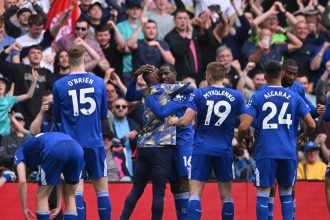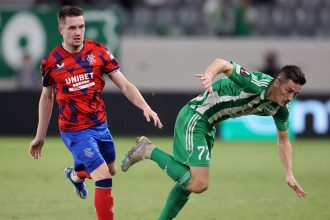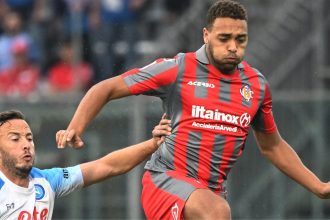After the derby humiliation against Atletico Madrid, Xabi Alonso faces his biggest test as Real Madrid manager, which is rebuilding a fractured dressing room, restoring discipline and redefining what leadership means at the Santiago Bernabeu. With matches against Barcelona and Liverpool coming up, Madrid’s new era hangs on whether Alonso can end bad habits and ignite a winning culture once again.
Pressure mounts after the Atletico collapse
The 5-2 defeat to Atletico last month didn’t just sting because of the scoreline, it cut deep into Los Blancos' identity. For a club built on standards of excellence, the display exposed cracks in focus, fight and leadership. According to the , the dressing room atmosphere in the aftermath was said to be tense. Senior figures reportedly confronted younger players over preparation and professionalism, while Alonso held a closed-door meeting with his coaching staff to assess what went wrong, not just on the field, but behind the scenes. Madrid’s hierarchy, too, began to sense that the problem wasn’t purely tactical. It was systemic.
Madrid’s response since has been steady but unconvincing. A few wins in La Liga and the Champions League have eased the noise, but the real tests are only beginning. With Barcelona, and Liverpool lined up, the team’s mental fragility could resurface under pressure. And for Alonso, still in the early months of his reign, this run could define his authority or expose how far his rebuild still has to go.
AdvertisementGetty Images SportLeadership void and the ego era
Madrid’s dominance through the last decade was sustained by continuity with figures like Luka Modric, Toni Kroos, Dani Carvajal and Nacho Fernandez setting the tone in both training and battle. Today, only Carvajal remains, carrying the armband and the burden of leadership almost alone. The departures of Modric, Kroos, Lucas Vazquez and Nacho have left a vacuum that no one has truly filled.
Former coach Carlo Ancelotti often warned of this moment. He valued the veterans for their influence more than their minutes, calling them “guardians of the atmosphere.” Now, Alonso’s Madrid feels younger, livelier, but more fragile. Federico Valverde leads quietly through example; Aurelien Tchouameni shows discipline but is still learning; Kylian Mbappe is electric in matches yet distant in the daily grind; and Jude Bellingham, still early in his Madrid story, is being pushed toward leadership, perhaps much faster than he expected.
Citing a few problems, Vinicius Junior, once the symbol of Madrid’s new energy, is now reportedly at odds with the club over a contract renewal dispute. According to reports, he has rejected multiple proposals, insisting he deserves to be the highest-paid player above Mbappe, Bellingham, and long-serving veterans. Insiders suggest that the issue is no longer financial, but symbolic as Vinicius believes his contributions and status warrant the top bracket.
Alonso’s culture war at Valdebebas
The former Bayer Leverkusen head coach didn’t just arrive to win matches, he came to change some "bad habits", the report adds. Inside Valdebebas, he has demanded punctuality, raised training intensity, and erased any sense of hierarchy between “stars” and “newcomers.” “He’s a coach who trains with the players, not one who just observes,” a staff member shared. His message is clear and simple that talent alone isn’t enough anymore.
But cultural reform is slow work in a club addicted to immediate results. Some within Madrid describe Alonso’s challenge as “turning a luxury team into a disciplined one.” His hands-on, no-compromise approach is a break from Ancelotti’s calm management style. Still, old habits like lateness, ego, complacency and so on lingers within the team. Alonso’s fight is as much psychological as tactical which is to rebuild a collective mentality before big nights test their resolve again.
Aside from Madrid, Alonso’s vision extends beyond the first team. In recent weeks, he has echoed Jurgen Klopp’s idea of creating a U21 league in Germany and suggested that Spain needs something similar. “There’s an entire generation of players who fall through the cracks between youth football and the senior level,” Alonso said. “We need structured competition that teaches responsibility early.” Players like Nico Paz, Arda Guler and Alvaro Rodriguez have immense potential but little competitive space to bridge the gap to elite football. Alonso believes that institutional reform is essential to developing maturity and reducing the “lost years” many young players face before they stabilise professionally.
AFPCan Alonso build a group of elites at Madrid?
A narrow win over Juventus brought brief relief, but the real proving ground begins now. El Clasico looms, followed by a trip to Anfield to face Liverpool, these are matches that will reveal whether Madrid’s “new culture” has substance or slogans. Another misstep, like the one against Atletico, could revive doubts about leadership and unity in the dressing room.
Los Blancos' transformation has always happened through crisis. For Alonso, this is that moment. His project isn’t just about tactics or transfers; it’s about identity. Can he build a team that fights together, leads together, and plays with the discipline of Madrid’s great generations? The next few weeks will tell whether the Spaniard is forging a culture strong enough to carry Europe’s most demanding club into a new era.






